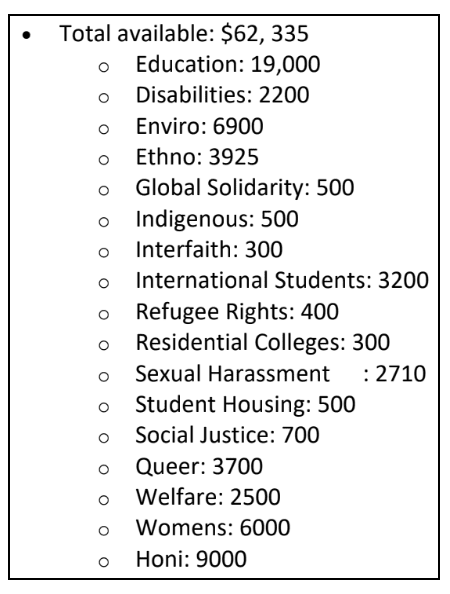The University of Sydney Student Representative Council (SRC)’s preliminary budget for 2021 reveals cuts across several departments and a likelyanother impending online election.
The SRC is projected to receive $1,915,317 in base funding from the Student Services and Amenities Fee (SSAF), the same amount as 2020 adjusted for inflation. However, according to SRC President Swapnik Sanagavarapu almost no departments received the budget allocations requested.
The SRC’s application for an approximately $45,000 increase in funding was rejected by the University.
The General Secretaries and President told Honi: “Our fixed costs have risen faster than inflation. This corresponds to an increase in wages paid and the inclusion of a VP Stipend and Welcome Week budget.”
Contestable funding to the SRC – which comes from a leftover pool of SSAF – has been frozen for the second year in a row. This has reduced funds for Student Representative projects, such as permanent funding of the FoodHub and increased legal support.
The historically less-active Interfaith and Residential College departments will see a 40% decrease in funding to $300, whereas the Women’s portfolio saw an increase of 50% to $6000, with the Sexual Harassment portfolio receiving more than twice their 2020 budget with $2750. After a year of organising against higher education fee increases, the Education department received the largest proportion of SSAF ($19,000).

A breakdown of the SRC’s preliminary allocations to departments from the 3 February Council agenda.
At the first SRC council meeting of the year on 3 February, Sanagavarapu indicated that the 2021 SRC election will likely be held online, though the final decision remains with the SRC council. The university has not provided sufficient funding for an in-person election, only covering the cost of the license for BigPulse, the online voting system used in the 2020 election.
“There is a direct trade off between the costs of funding Departmental Budgets and paying for an in-person election,” said Sanagavarapu. “Placed in a difficult position, myself and the General Secretaries were of the opinion [that] saving activism is preferable to a return to in-person elections.”
The start of 2020’s online election was marred by technical difficulties, with several students receiving a blank email instead of a voting link. Despite a rocky start, Honi understands that votes were kept securely and less scrutineers and supervisors were required in the counting process.
The SRC is currently still in negotiations with the University regarding SSAF funding. They were made to reapply for Student Representative Projects and are therefore subject to change.





